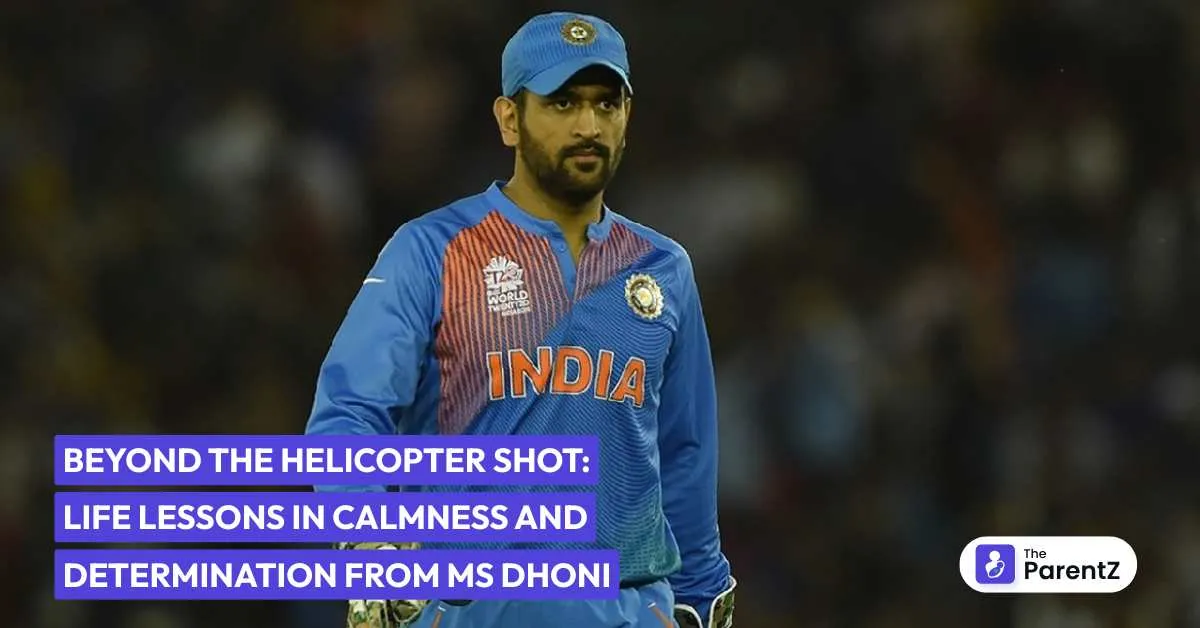Let’s be honest—when we think of MS Dhoni, that iconic helicopter shot probably pops up first. You know the one. That wristy finish, the ball sailing into the crowd, the calm face walking off even before the crowd has processed what just happened. But if that’s all you see when you think of Dhoni, then you’ve missed the real story.
Because MS Dhoni isn’t just about finishing matches. He’s about how you carry yourself when the world expects you to crack.
This is not a tribute to a cricket legend. This is a reminder—told through his journey—about staying calm when the room is on fire and pushing forward when the road ahead is anything but fair.
Calm Is a Skill, Not a Trait
There’s a myth we love to believe: that some people are just naturally calm. That they’re wired differently. Dhoni proves otherwise.
This is a guy who captained India through one of its most intense cricketing eras—high expectations, brutal criticism, constant public pressure—and still walked out to press conferences like he was heading to a Sunday brunch. But that calm? It wasn’t magic. It was cultivated. Earned.
Watch him when the required run rate climbs, wickets fall, and the stadium roars in panic. Dhoni doesn't flinch. And that stillness—it’s not passiveness. It’s calculated control. That’s the kind of calm that comes from knowing the storm, not pretending it doesn’t exist.
It’s a reminder that you don’t have to shout louder to be heard. Sometimes, the quietest man in the room is the one who has already figured it all out.
Determination Doesn’t Always Look Loud
If you’re looking for Dhoni moments where he’s screaming, fist-pumping, or doing lap runs like a motivational reel—good luck. His brand of determination is silent. Stoic. The kind that grits its teeth, not its fists.
Take his early journey. A ticket collector in Kharagpur one day, the captain of Team India a few years later. But there was no overnight fairy tale here. There was struggle. Sleepless nights. Matches played in the dust bowls. Rejections that could’ve broken most people.
But Dhoni didn’t break. He didn’t make noise either. He just kept showing up.
There’s a lesson here, especially in a world that celebrates loud ambition. Sometimes, the real work happens when no one’s watching. When there’s no applause, no highlight reel. Just you, your goal, and a stubborn refusal to quit.
Leadership: Letting Go of the Spotlight
Most leaders want to be seen. Dhoni? He was happy disappearing into the background. After India won the 2011 World Cup, when the entire team was celebrating, guess who handed over the trophy and quietly walked to the side?
That’s Dhoni in a nutshell. A man who knew that leadership wasn’t about shining—it was about making others shine. He let the young guns take center stage. He celebrated their victories louder than his own. He stepped down from captaincy not because he was forced to, but because he knew it was time.
In a culture obsessed with credit, here was someone actively giving it away.
Failure Didn’t Define Him
Remember that 2019 World Cup semifinal? India’s heartbreaking loss to New Zealand. Dhoni’s run out. Silence.
It could’ve been the endnote to a glorious career. And for many, it was. But here’s the thing—Dhoni didn’t throw a tantrum. Didn’t blame. He walked off with the same quiet dignity he brought in 2004 when he made his debut.
He understood something we all struggle with: failure isn’t your identity. It’s a chapter, not the entire story.
And if MS Dhoni can face heartbreak on the world stage and still walk off with grace, maybe we can handle a bad day at work without letting it wreck our self-worth.
Final Thoughts
MS Dhoni’s greatness can’t be measured in stats alone. Sure, he’s got the trophies, the records, the fanfare. But his legacy? That lives in how he carried himself when it mattered most.
He taught us that calmness isn’t weakness. That determination doesn’t need a mic. That leadership means knowing when to lead and when to step aside. And that failure—no matter how loud or public—isn’t the end of the road.
The helicopter shot might’ve made him famous. But it’s the way he walked off the pitch, time and again—with quiet dignity and unshaken resolve—that made him unforgettable.
And if we’re paying attention, there’s more than just cricket in his story. There’s a manual on how to face life—with calm, with class, and with the kind of strength that doesn’t need to shout.





Be the first one to comment on this story.